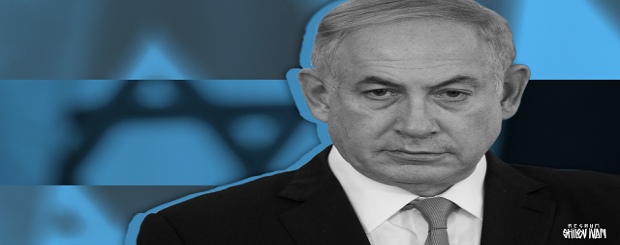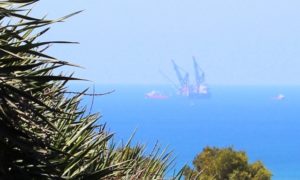
Stanislav Tarasov – Israel is looking for opportunities to establish contacts with Turkey
May 19, 2020 | Stanislav Tarasov – regnum.

annotation
A new geopolitical equation is being built in the Eastern Mediterranean. It is possible that Israel is conducting an active political and diplomatic probe in this regard in order to identify common goals, despite acute and protracted conflicts in the region. In the event of the revival of the Israel-Turkey alliance, a new geopolitical synergetic effect may appear.
When a message appeared in the English edition of Middle East Eye referring to special sources that “the Israeli government intends to restore full diplomatic relations with Turkey through an exchange of ambassadors” and that “both countries have common interests, such as Syria and natural gas supplies to Eastern Mediterranean ”, this excited the expert community.
Thoughts appeared that some other geopolitical combination was being prepared in this region of the world.
Moreover, this information was duplicated by the Turkish international news channel TRT World, indicating that Israel “unexpectedly refused to sign a joint statement of Egypt, Southern Cyprus, France, Greece and the UAE, in which Turkey was accused of illegal activities” in the eastern Mediterranean. ”
Then the baton was taken by the Saudi English-language newspaper Arab News. She said that “Israeli and Turkish officials are allegedly holding secret negotiations aimed at reaching an agreement on maritime borders and exclusive economic zones in the eastern Mediterranean.”
Earlier, Israel helped Turkey deliver a shipment of medical care to the occupied West Bank and the besieged Gaza Strip, as Ankara received permission to export medical equipment purchased by Israeli hospitals to fight coronavirus.
At the same time, it was suggested that if events continue to develop according to this scenario, then not only the existing agreements between Israel and Cyprus will fall apart, especially regarding oil and gas exploration, but also the Eastern Mediterranean Gas Forum, which appeared at the end of last year and which is based in Cairo, but also the so-called strategic triangle Israel – Greece – Cyprus, which was associated with the upcoming changes in the Middle East and the Eastern Mediterranean.
What is behind all this? Israel and Turkey were strategic partners in the past, but began to move away from each other when Ankara began to reorient its foreign policy, putting its interests in the Islamic world first and subordinating them to the problems of European integration.
This shifted emphasis in the former, which seemed to be common regional interests. On the horizon loomed the phenomenon of restoration of influence on the territory of the former Ottoman Empire, where, incidentally, modern Israel is located today.
But while Turkey claims to be a leader among the Sunnis in the Islamic world, Iran holds the flag of Shiism. Today, for various reasons and with different motivations, they oppose Israel, which finds support only among a part of the countries of the Arab world.
Therefore, one should not be surprised that Israeli diplomacy has always explored the possibilities of breaking such an alliance through a bargain.
Such today is the possible energy agreement between Israel and Turkey, providing for the supply of gas from Israel to Europe through the territory of Turkey.

There is a second point. Israel believes that, like Turkey, it is not interested in strengthening Iran’s military and other presence in Syria, and this “common theme leads the parties to a dialogue”, like Hezbollah in Lebanon.
But these are scenarios of “friendship against someone” with only a theoretically identified potential for cooperation with strategic depth, which outlines the interests of Greece, Cyprus and a number of Arab countries besides Israel and Turkey.
Therefore, the possibility of joint exploitation of gas resources in the eastern Mediterranean, including the creation of a gas pipeline connecting the fields of Israel and Cyprus with Greece or Turkey, and then going to Italy, is still a cover for serious geopolitical shifts being prepared in the region.
By the way, it seems that Israel is trying to revise relations with its most important neighbors – Egypt and Jordan, expanding the possibilities of maneuvers in other areas, including Turkey, in the future promoting it in the European direction in the context of the historical definition of the region and the self-determination of Israel as a nation state, recreated on the ancient homeland of the Jewish people.
Thus, at the strategic level in the Eastern Mediterranean, a new geopolitical equation is being built.
It is possible that in this regard, an active political and diplomatic probe is being conducted to identify common goals, despite acute and protracted conflicts, such as the Moroccan-Algerian conflict on the Sahara issue or the ongoing civil war in Libya.
In the event of the revival of the Israel-Turkey alliance, a geopolitical synergetic effect may appear, opening up new opportunities for regional cooperation in the Eastern Mediterranean and the Middle East, which can provide great chances for a compromise that, along with mutual concessions, will benefit all parties. Will wait.

May 19, 2020
Stanislav Tarasov
regnum.ru/news/polit/2954598.html
English translation – LOUSAVOR AVEDIS:
